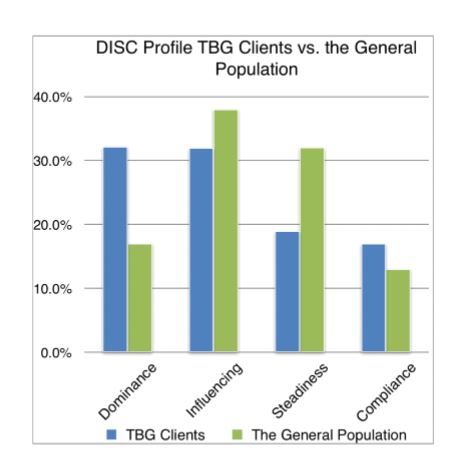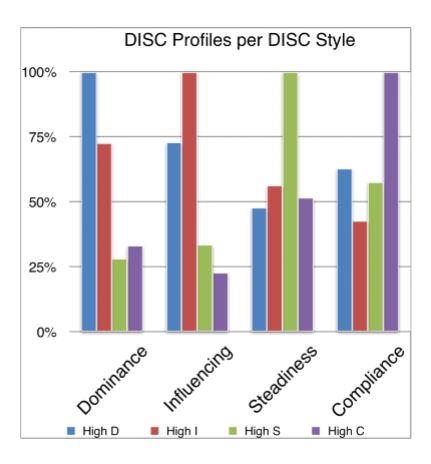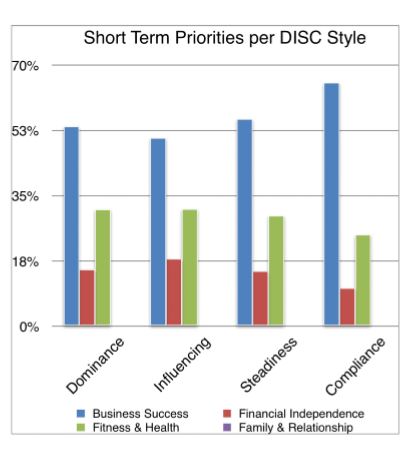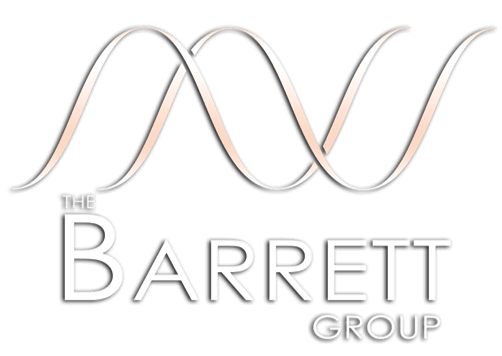What Moves Executives to Change Jobs? (And how is it changing?)
We’ve talked extensively in prior issues of this Blog about individuals and the factors that motivated them to seek us out for support in their career change endeavors – and change jobs.
Quantitatively the main factors driving executives to connect with us include the following:
(based on tens of thousands of data points)
- Unemployment,
- Perceived unfair compensation,
- Lack of challenge,
- Perceived decrease in the likelihood of a promotion, and
- Being undecided about the future career path.
The relative importance of each of these factors also varies tremendously based on income range.
For example, in 2019, only 5-10% of executives who contacted us and declared their most recent income to be $100,000 or less indicated that they strongly agree that they are “fairly compensated.” However, more than 20% of executives who contacted us and declared their income to be $200,000 or more strongly agreed that they are fairly compensated.
Unemployment remains a fairly stable factor motivating executives to reach out to us. Ranging from 13% up to 19%, higher at the higher income ranges.
Among all executives who have contacted us in the last year, other factors for job change decrease as income increases. Such as the desire to explore a new industry or strong agreement with the statement “at my age it’s important to make a change.”

Our clients are quite different than your average executive, however, in several ways.
First, as we explained in an earlier issue, they tend to be more high D in DISC terms (more driven and dominant) than the general population. This means that external factors such as “decreasing likelihood of promotion” or “lack of recognition” (i.e., doing the work but without the title) are less important to them. Internal factors have more weight in driving their decision making.
They are curious about new industries and often undecided on exactly which direction to go, probably because they feel they could be successful in many different industries.
This is where our “Targeting” service, the Clarity Program©, uniquely aides business people, whether they are executives, lawyers, people transitioning out of the military, or other professionals seeking support. In any case, we continuously help our clients to demonstrate the transferability of their skills and therefore to excel in interviews and competitive hiring situations.
There are some interesting differences though from 2018 to 2019 in the relative importance of motivating factors to change jobs.
For example, unemployment seems to have increased significantly—up 3-5% points in the income range north of $100,000—this despite the overall low unemployment rate. Also “increasing competition” has started to show up as a motivating factor more frequently at least in the top income ranges in 2019. At the same time, the “decreasing likelihood of a promotion” response has declined this year, so that at least some executives are finding staying put to be an attractive alternative.
So what are your motivating factors in 2019? Are you happy where you are, in which case, good on you! Or are you driven to seek more satisfaction, more reward, better quality of life, and/or more income? If you answered “yes” to any of those factors, then perhaps we should talk.
Peter Irish
CEO
The Barrett Group
Self-Knowledge is Power (for our Clients)
Let’s continue our discussion about the people who seek out the Barrett Group’s help in clarifying their career objectives and navigating the career change process. Knowledge is power!
As I’ve reported, our career change process begins, logically, with Targeting. While title, compensation, geography and industry might suffice for some actors in this industry, we want to really understand our clients as people. Our Clarity Program© helps us do this by exploring personality, short term priorities, and long term strategic plans at the very outset of the career change process. More than 90% of our clients rate this Clarity experience as “Excellent,” so we must be doing something right.
So what kinds of people come to us and benefit from our services? Geographically, 95% are from the US, though the incidence of non-US nationals is increasing.
We work all across industries and geographies, so there is little meaningful differentiation on these dimensions. But what about the psychography of our clients?

In a study of several hundred clients over the past year, we found some interesting perspectives. You probably have heard of the DISC profile (Dominance, Influencing, Steadiness, and Compliance).
The DISC profile is the instrument we use to help our clients understand the role of personality in career change.
People who exhibit more than 50% in their DISC scores are considered as “high” ratings, so a “High D,” for example, is a person whose dominance score is higher than 50%.
By a margin of 15% points, our clients do tend to be relatively High D versus the population at large. They are also relatively Low S (Steadiness). This makes good sense, because our clients are typically executives who are in a hurry to get results.
That’s why, for example, they see the advantage of the six-person team we assign each executive—we shorten their career change curve and allow them to focus on the truly value-adding aspects of their search.
High S by contrast are typically slow to change and therefore probably tend to stay in the same job longer than they should due to their personalities. This is conjecture, of course, but it seems reasonable and our data supports it.
People are not only High D or High S, of course, because everyone has secondary or even tertiary styles as well. High D and High I tend to be more extroverted, and we see a fairly strong correspondence in our client data that the High D’s have a tendency to also be High I and vice versa.
The High S and High C clients, however, do not show as much of a cross-correlation, though there is also a pocket of High C / High D clients, as well— people who are both detail-oriented and demanding.
We do not have the time or space here to go into the complete results of the study, but perhaps we should take a quick look at the relative short term priorities of our clients to see if these correlate in any way to personality.


In the second stage of our Clarity Program© we look at four dimensions (Business Success, Financial Independence, Fitness & Health, and Family & Relationships) and ask each client to rate where they are and where they would like to be on each of those dimensions.
The chart at left shows firstly, that none of our clients rated Family & Relationships as the most important dimension. That is perhaps less surprising than you might think because our sample is heavily biased toward people focused on their careers.
Business Success is therefore logically the focus of all of our clients, followed by Fitness & Health, while Financial Independence rates a rather distant third on average. Interestingly it is exactly the detail-oriented and perhaps introverted High C (Compliance) type of client who places the highest priority on improving their Business Success.
And that is really not surprising because that is, in a nut shell, why people come to us in the first place.
If you are struggling to find that sweet spot where your life is balanced, prosperous, and exhilarating, maybe it’s time we talked about your career.
Peter Irish
CEO
The Barrett Group
Onward and Upward
Thousands of professionals come to us each year looking for better career opportunities. So many, in fact, that we can actually identify collections of symptoms of people who particularly benefit from our services. I think it’s helpful for executives to see themselves in these “personas” and thereby perhaps better understand the process that will quickly lead to a successful conclusion. Onward and upward.
One reason for this success is that we look at the whole person when clarifying career objectives—not just the targeted title, compensation, and geography. Whether they are executives, lawyers, people transitioning out of the military, or other professionals seeking support—our Clarity Program© uniquely facilitates this process.
But let’s take a specific example.
How about Adam? Over the course of Adam’s professional life, he has actually used services like the Barrett Group’s five times—four times successfully—an 80% success rate with a payback of more than 2,000%.

Each time he was up against some perceived or real constraint and needed to move to earn more money or become more international or travel less…
His first encounter was with a company in that introduced him to the power of self-knowledge via the Myers-Briggs Type Indicator, equipped him with a targeted and professional resume, and provided him with a mailing list. Within a few months, he increased his salary by 120% and became a Director at an international association.
The next time he wanted to move because he had suddenly received a new and particularly unsympathetic boss. Through another career management firm he obtained a list of 1,400 executives in the target geographies, sharpened up his resume, approached the so-called “unpublished market” (where 75% of Barrett Group clients land) and soon joined a Fortune 100 company as a regional General Manager intent on business development.
After four years he was again facing a ceiling and felt he had to move, so he sat down with yet another firm who expected to help him using only the recruiter market (only about 10% of our clients land through recruiters) and, unfortunately, this time the magic did not work. However, through perseverance and hard work, he did ultimately obtain a Vice President job at a multi-continental enterprise in the FMCG industry.
Eleven years later, Adam turned to a fourth firm who again helped his self-knowledge, packaged him appropriately for his targets, and then mailed his executive package to several hundred enterprises.
One of them ultimately hired him, and his return on investment in this case was about 25 to 1.
Lastly, several years later, Adam came to the Barrett Group. By this time, he was a bit weary of working for large corporations, so we helped him consider alternatives. Through our Clarity Program©, he realized that he actually did not want a job at all. Instead, he wanted to be his own boss and run a business. We helped him design an approach to choosing a business. He vetted several, and finally bought one and made a success of it. Today he is a satisfied and successful entrepreneur, and would certainly agree with this testimonial from his fellow Barrett Group client, Richard Bellas:
“I was very skeptical at first but decided to call the Barrett folks anyway. After working 22 years at PepsiCo in various senior management positions I was looking at new opportunities and/or senior executive/corporate roles. Another Ex-PEP executive spoke very highly about the group and their capabilities. That was almost two years ago, and it ended up being a great decision to call and they helped me with my professional choices and offered some helpful personal counsel, too.”

Every year we help hundreds of executives articulate their dreams and realize them. Are you satisfied where you are or are you ready to move onward and upward?
Peter Irish
CEO
The Barrett Group
Discover the New You
It is our pleasure to speak with hundreds of prospective career changers every month through which we gain a direct understanding of what is going on in the market place. These calls run the emotional gamut from desperate to philosophical, depending on the candidate’s situation. Through this blog I want to share some of these stories to help you understand that you as a would-be career changer are not alone. Many people share your concerns and challenges, and may be able to offer solutions. Discover the new you.
Whether they are executives, lawyers, people transitioning out of the military, or other professionals seeking support, our Clarity Program© uniquely facilitates this process, because we look at the whole person, not just the targeted title, compensation, and geography.
Let me tell you about Alex, who recently went through our Clarity Program©.

Alex has a successful career in business development for a data center SAAS company that requires a fair amount of travel and glad-handing. He has been through a divorce, has two children now more or less out on their own, and he thinks a lot about the future.
When he came to us he was unsure about his career direction. At 55, he was certainly afraid of ageism and that his career had plateaued, however, what he got through our Clarity Program© was a completely new understanding of what makes him tick and where he is going in life.
During the psychographic profile debrief, for example, he realized that he is a profound extrovert. He gains energy from interacting with people. He also realized that he needs support from others who are more attentive to details or better at following procedures. This might sound trivial, but for Alex it was a life-changing set of insights. He embraced this better understanding of his own persona wholeheartedly and was suddenly happier and more fulfilled.
We went on from there to explore his current constraints and discovered that these were largely in the Financial Independence and Business Success areas. We picked these apart and identified short term measures he could adopt to improve on both of these key challenges.
Lastly, we worked on his personal strategic plan. We usually start with the Vision five years out, in other words, “where is this journey going?”, and once that Vision is fully rounded and clear, we then work backwards from there to see what the career changer needs to accomplish to realize the Vision.
In Alex’s case, he had a really big Vision to become a C-Level executive based in Switzerland earning $500,000 per year with a distributed world-wide team, etc.
Alex did a good job of rounding out his Vision to the social and personal side as well. We both felt surprisingly comfortable with his audacious target.
We realized many sub-steps along the way, for example, that Alex needs to actually spend time with C-Level executives if he ever hopes to be accepted as one. More specifically, he does not now have the financial management experience to succeed at that strategic level, so we concluded that he would need to get a “stepping-stone” job first to help him gain key skills and thus qualify for the big job he envisions.
All in all, Alex came out of the whole exercise energized and excited. He’s pursuing information interviews with executives who can help him build his network and, well, in his own words…
“Had I known ahead of time how powerful this is, I would have been jumping all over it much earlier. What I think might benefit you when you speak with potential clients who, like I, don’t know what they don’t know, is to offer to speak firsthand with someone who went through it.
I volunteer to be one you can call upon to be a ‘live’ reference.
Thank you for helping tremendously in changing my life!”

That’s the hidden benefit of being in the career management field: the warm appreciation we get when our clients succeed. Fortunately, we at the Barrett Group get a lot of this feedback, for which we are very grateful.
Peter Irish
CEO
The Barrett Group
Fight, Flight, or Delight?
Fight or flee… That’s how many people feel about their jobs. But there is at least one other common emotion in this context, and that is somewhere between boredom and a need for adventure. Let’s call it “delight.” In this series, we have been highlighting the many reasons that executives come to us to clarify their career objectives and find that next, ideal position. Three decades and literally thousands of satisfied clients bear testimony to our success. Fight, Flight, or Delight?
One reason for this success is that we look at the whole person when clarifying career objectives—not just the targeted title, compensation, and geography. Whether they are executives, lawyers, people transitioning out of the military, or other professionals seeking support—our Clarity Program© uniquely facilitates this process.
So what about “delight?”

Let me tell you about Antonio. He’s a government engineer in California who has been active in state and municipal water and energy infrastructure projects for more than two decades. He certainly feels safe about his job and his retirement plan, but he also feels extremely under-challenged and under-utilized. In a word, bored. So he reached out to us to consider how and where he might be able to enter the private sector in some more interesting role.
Through the targeting step in our career change process (the Clarity Program©), we helped Antonio consider his short term requirements in terms of financial independence, career success, family and relationships, and fitness and health.
And thereafter we helped him craft a personal strategic plan that will allow him to enter a tech company with solid credentials that demonstrate the transferability of his experience from the public to the private and highly entrepreneurial tech sector.
Antonio is just finishing the Clarity Program© and moving on to the packaging stage of our career change process, but like more than 90% of our clients who rate Clarity “excellent,” Antonio would likely agree with another client, Kamran Mashayekh, who said the following about his Clarity Program© experience:

“I would not tinker with perfection!!! The methodology of CP is a precise science. Mr. Henderson [his Clarity Coach] was sublime in the manner in which he executed the CP. He is an adept listener and allows the client to talk until the client is able to discover the answers that are already within them.
Mr. Henderson is an invaluable asset to TBG. I am exceedingly clear regarding my goals on a going forward basis. That is to a large extent due to Mr. Henderson’s patient and sterling execution of the CP.”
In fact, as I think about it, some clients actually feel “re-born” as a result of the Clarity Program©—released from a cycle of pursuing jobs that perhaps did not really meet their needs. I’ll tell you about another such client in a future article who realized that he did not have the skills and experience to reach his dream job in one leap, but that he tactically need another position in between—a stepping-stone job—to acquire those skills before obtaining his true objective in the C-Suite. This realization truly inspired him.
So, there is more than just fighting and fleeing to your professional experience. Perhaps you should not settle for anything less than delight. That’s what we’re all about: delighting our clients.
Peter Irish
CEO
The Barrett Group
Post-Government Success
As I’ve mentioned before, we help hundreds of professionals each year to clarify their career objectives and then go out and find the job of their dreams – and post-government success. Whether they are executives, lawyers, people transitioning out of the military, or other professionals seeking support our Clarity Program© uniquely facilitates this process, because we look at the whole person, not just the targeted title, compensation, and geography.
Inevitably, we find patterns in the people we serve. Let’s consider Jonathan who represents another of these “personas” that I think of as Post-Government Executives.

Jonathan had been a successful state prosecutor in Antonio Texas for more than twenty years. His specialization was essentially fraud crimes and increasingly personality theft. He had hundreds of successful prosecutions to his name and a great reputation in this circle.
As his government retirement loomed, however, he realized that he was still young at 56, with plenty of energy for a next career. So he began to look around on line. He was fairly unclear on what he should do next, though, or how he should go about looking for it. After all, he had not looked for a job in several decades and the market has become increasingly sophisticated.
He also had a deadline. His retirement would come up in November. So he knew he needed to get started in April or May at the latest if he wanted to really retire into another career late in the year.
Luckily, he found the Barrett Group…
And we were able to help him recognize areas where his expertise would be highly beneficial and it would be relatively easy to demonstrate the transferability of his skills. One target was to consider a corporate Fraud Officer role. Another was to head up an anti-fraud unit at a larger law firm. The financial services and even Fin-Tech routes were also appealing.
So we set about implementing our career change process of Targeting, Packaging, Market Access, Preparation, and On-boarding.
Jonathan is still in mid-process as we write this blog, but since our executive clients are landing on average in 4-5 months at this point in 2019, his prospects are excellent that he will find the ideal job on time to retire from government service in November.
He certainly shared that he felt relieved to have a six-member TBG team now working on his case including his clarity coach, career consultant, writer, researcher, client concierge, and negotiation coach—far more resource them he could have mustered on his own—and that he expects this to deliver a dividend in the form of speed to market.

Our client Kevin Baker certainly found that to be true, saying:
“My team at the Barrett Group was an outstanding consulting force in assisting me with securing a career position that exceeded my expectations. Always highly professional and responsive, they delivered on their promises. I was particularly impressed with the quality of my consultant’s personal advice, guidance and coaching and the group’s career document preparation. Partnering with the Barrett Group was the most important investment that I have made in my career. I strongly recommend their services to anyone interested in advancing their career.”
We’ll follow Jonathan’s progress with pride while we wonder about all of those others planning to leave the government and how they, too, will find professional fulfillment in their post-public service lives.
Perhaps we can help.
Peter Irish
CEO
The Barrett Group
Read the Writing on the Wall
In this series of articles, we attempt to portray the circumstances that motivate career changers today. So far we have addressed perceived ageism, required transitioning, and victims of technology. Merger and acquisition, of course, is another great motivator. Read the writing on the wall.
Let’s consider Marcy who worked diligently, delivered results, earned a solid six figures, and fully expected to be promoted in her sales job at a SAAS company in San Francisco. Then one day her boss called her into his office. In a rather uncomfortable fashion, he explained that the company was being acquired. Consequently, the sales team was going to go through a force-ranking exercise to choose only the best from the two sales forces.
While she tried to pay attention to the criteria on which the selection would be based, subconsciously she knew her best defense was to get out there and start looking. “No one will take care of your interests like you,” she remembered her mother’s advice.
So she began to look at the job boards where she saw plenty of jobs advertised. She began posting resumes and applying resolutely to ten or more jobs per week.
As the days ticked by and the force-ranking exercise crawled closer, she began to feel more and more nervous about the lack of response to her resumes. She received a few “thank you” emails but they seemed to be auto-responses with no way to find out who had actually sent them.
Then she started to look at recruiters specialized in SAAS firms and sales. Here she had a few telephone interviews. Everyone was pleasant in a superficial way, but the salary ranges were too low and she always seemed to be overqualified.

Quietly desperate, she widened her search and discovered the Barrett Group.
After consultation with her senior career consultant she felt intrigued by the Clarity Program© we offer that looks not only at the candidate’s targeted role, geography, and compensation, but at the person behind it.
Jointly with the client, we investigate personality and behavioral tendencies, current and desired life circumstances, and the client’s vision for where he or she would like to be five years from now.
Marcy signed on and quickly gained insights into why she was being glass-ceilinged and, in fact, that she really wanted to work in a different role, industry and geography.

She certainly would have agreed with another client, Megan Lovell…
“This was my first experience with the Clarity program and all the components of it. I needed quite a bit of clarification and he [the Clarity Coach, Vivek] was so patient and kind through it all. He also had great reading suggestions to deepen the knowledge I acquired from it. Although I have to take smaller steps to get to my ultimate goal, he worked extremely hard to help me understand why and formulate tangible goals to get there. I truly enjoyed every phone call I had with Vivek and feel more empowered to make the necessary changes. Thank you!“
Marcy decided to be a bigger fish in a smaller pond. She quickly landed a sales leadership role in Pittsburgh, benefitting from a lower cost of living as part of her relocation.
In other words, don’t wait for the axe to fall. Read the writing on the wall and get going while the going’s good. After all, it’s only your future happiness at stake!
Peter Irish
CEO
The Barrett Group
Read more blog entries:
Don’t Just Grin and Bear It
Julia was a successful HR VP for more than a decade before she decided it was now or never as far as reproduction was concerned. Her spouse was supportive, so they decided ultimately to have two children. She stayed home, raised them diligently until she could conscionably put them into daycare. She then dusted off her resume to return to her career track. “Don’t Just Grin and Bear It” takes a closer look at her situation.

First, rather a lot had changed in the meantime in the job market. But more profoundly, she realized that she did not even know how to search for an adequate job any more.
The public job boards listed many interesting jobs, but, being public, they are typically swamped with applications. As a result, several have to some extent adopted computerized screening of applicants’ resumes to ease the burden of picking through the most qualified.
Julia felt increasingly nervous as the days ticked past with little or no response to her resolute applications—usually five per day.
That is no surprise to us.
Only about 15% of our clients actually land through the public job markets for exactly this reason. Also, note that the competition for those jobs is fierce. That tends to make it an employers’ market with the resultant effect on compensation for those lucky enough to get through the screening.
Nevertheless, according to author Sheryl Sandberg’s Lean In: Women, Work and the Will to Lead, 74% of professional women do rejoin the workforce after taking time off to have families.
USA Today (March 25, 2019) highlights another interesting trend: “The best job market in half a century has been a boon for older women going back to work, typically after raising kids for nearly 20 years, and for those staying in the workforce at more advanced ages.”
These women accomplish this feat in many ways, but, most of our clients —75% in fact—find their next opportunity through the unpublished market.

For example, one recent client could not seem to get a foot in the door with CEOs in her relevant target market. We helped her leverage her social capital. She soon discovered that her next door neighbor was extremely well connected to CEOs in the U.S. because he actually made and sold executive desks to CEOs. Needless to say, it did not take long for her to utilize this connection. She was soon interviewing and shortly thereafter, back in the saddle, so to speak.
Whether you are a returning mother or not, everyone looking for a job needs excellent moral as well as professional support.

Here’s what one Clarity Program© client, Carol Knouse, hat to say about her Barrett Group experience:
“Working with the Barrett Group was a game changer for me. It had been years since I looked for a new position and my consultant really educated me with regard to changes in the recruiting industry along with the use of social media like LinkedIn. She kept me on track and I really learned how to market myself. Anyone looking for a job or career change owes it to themselves to work with TBG!”
Don’t let “the best job market in half a century” pass you by! Get in there and find that perfect job now. If you don’t know where to start, consider our Clarity Program©.
Peter Irish
CEO
The Barrett Group
Read more blog posts:
An Algorithm Took My Job
That’s exactly what Joe told me the other day on the phone: “An algorithm took my job!”

Joe had been a successful stock analyst for more than 20 years on Wall Street, usually working from home, often trading late into the early morning hours and generating excellent returns. He is an introvert by nature, so his social circle and professional network are not robust. Maybe he wasn’t listening adequately to the march of technology.
So when his long term employer was acquired and the new managers announced they were hopping on the exchange traded funds bandwagon, Joe was out on the street—and totally unprepared.
As a career management firm active for more than three decades, we hear this story again and again.
What about the ignition system and drive chain engineers suddenly rendered obsolete by automakers’ shift to electric vehicles? The recruiter whose screening of resumes is now handled predominantly by AI? Or the airline attendant made redundant by the check-in kiosk?
And it will continue.
As in many cases, the best defense is a good offense. Start rethinking your career now before you have to and head for higher ground. There are many pockets where people are still preferable to machines, and there probably always will be.
So where are they?
Actually, that’s the wrong question. The first question is, how satisfied are you with your current career track? Adding your voice to our Job Satisfaction Survey may help you answer this question.
The second question is what occupation best fits your skills, experience, and preferences? If you want or must change jobs, then why not look for one you will enjoy and that will compensate you appropriately? Our Clarity Program© helps executives reconsider how they can best utilize their personalities, their skills, and their experience to better fit their changing life circumstances and drive in a coherent long term direction—a personal strategic plan. More than 400 executives have rated this program resoundingly “Excellent” so far.

Here’s what one recent Clarity Program© client, Georgie Seitz, had to say:
“[My Clarity Coach] Julie was Tremendous… She’s a great motivator and so very easy to work with. I feel I got off to a really good start thanks to her motivation, and I’m really looking forward to the next steps. This part of the program was Excellent…”
Our Clarity Program© has helped people like Joe understand that their real skill is actually in pattern recognition—a highly transferable skill. Joe went on to become a data analytics VP in a completely new industry.
Now you might think that the new jobs are less valuable than the old ones, but again, the Economist’s research does not bear that out: “The incidence of “low pay”—workers who earn less than two-thirds of the median—has been falling for two decades.” (The Economist, May 25, 2019, Briefing: Labor markets.)
The old adage is “As long as there is life, there is hope…” so keep an open mind, and do not be afraid to reinvent yourself.
Peter Irish
CEO
The Barrett Group
Read more blog entries:
Executives Are People, Too
In our line of work we talk to a lot of people every week. Many of them wonder why, if this economy is so fantastic, do they feel the need to change jobs?

As the Economist and many other sources report, the US economy is really doing very well with unemployment below 3.8% nationally, and most macroeconomic risks (other than trade) currently in retreat. This should actually encourage executives to look around and consider whether they are living the lives they really envisioned for themselves and their families.
It is a job-seekers’ market.
So why do so many executives feel helpless at the thought of taking that step? Or for that matter, why do they feel so uncomfortable in their current jobs to begin with?
Let us take the reasons one by one. Today, we’d like to focus on perceived ageism.
Consider this: David contacted us recently after more than 25 years working in merchandising in New York. He has created multiple collections in numerous merchandise categories, driven these assortments though product managers successfully to market using brick and mortar stores and web shops. He has had five or six longer engagements during his 25 year career.
Suddenly, the pipeline is empty. Where recruiters and entrepreneurs used to call him up and actively seek him out, now he hears over and over again the dreadful judgment, “Sorry, but you are overqualified…” as feedback on job interviews—if he hears back at all.

It’s depressing for him and he’s struggling to keep his head up… struggling to maintain his own self-respect. He’s not destitute, but he’s not able to retire either and while his kids have grown and moved on, he and his wife still must maintain their modest lifestyle and prepare for eventual retirement. He is quietly desperate… even if he won’t admit it.
Ageism is insidious and you may never really know if you are truly a victim, because few
potential employers will actually be candid these days due to the risk of a law suit, but David suspects it is the on-set of ageism.
Should he continue to send his resume again and again, applying for great-sounding jobs on various on-line job boards? What other options are there?
You Have Options!
Only about 15% of our clients now land new jobs through job boards, so it is certainly worth trying, but also not sufficient. In fact, it is advisable to try additional approaches and to hire a firm like the Barrett Group to assist you if you feel you have lost your way professionally.
As David admitted to me, “I haven’t looked for a job in twenty years and the market has really changed in the meantime.”
Most important is the question of targeting. If David continues to pursue the same career target over and over again, then the chances of his success actually diminish even as his courage and resolve dwindle, too.
We have an answer for this situation. Our Clarity Program© helps people like David to actively rethink their career targets. We take a holistic approach, considering the personality and behavior of the individual, his or her current life circumstances, and longer term career objectives into account to help people like David reinvent their approach.
One recent client, Trista Fawley, told us this about the Clarity Program©:
“[My Clarity Coach] Scott was amazing and made me feel very comfortable. His insights and approach to breaking down the “big rocks” is an invaluable skill.
I know I am early in the process but my time working with Scott has already started paying off in the way I view myself and my abilities.”

Consider evaluating your own situation by completing our Satisfaction Survey.
We love to help people rethink their career objectives, too, via our Clarity Program©.
Let us know if we can help you.
Peter Irish
CEO
The Barrett Group
Read more blog posts:

